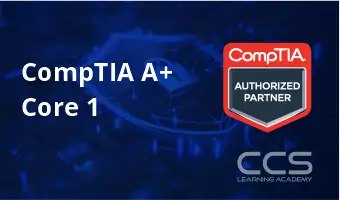Filter by Topic
Filter by Vendor
Ruby Foundations eLearning
Course Description: This online training course is a high level …
What you'll learn
Setting up computer to utilize the Ruby technology
Create your first program
Utilize various syntactical rules
Define and use various attributes of a Ruby class
Understand how various supported data structures are created and manipulated in Ruby
Conditional logic statements
Modules in Ruby
String creation, manipulation, and deletion
Array creation and manipulation
Hash creation and manipulation
Common iterators
Object orientation
DBI
Plain text and HTML emails from a Ruby application
GUI programs
Multithreading
JavaScript Foundations eLearning
Course Description: This online training course is a high level …
What you'll learn
The basics of JavaScript
Data types
CLI basics
String methods
Object literals
if and switch statements
Object-oriented programming
Python Application Security eLearning
Course Description: This online training course is an introduction to …
What you'll learn
Overview of course and course-level learning objectives
Quick overview of some common concepts and resources for securing your app
Learn how to use Bandit to detect potential security issues in your Python code
Understand how to implement the Flask-Security package
Understand the risk of XSS and how to mitigate this in your Flask app
Understand how CSRF attacks work and how to mitigate them in your Flask app
Understand how SQL injection works and how to mitigate in your app
Explore the various HTTP headers that allow an application to work with the browser to control security
Improve the security of our app using what we’ve learned
Increase security of our app using what we’ve learned
Increase security in the apps APIs
Explain and fix all detected issues using the Bandit package
Learn about various types of input injections
Understand why we only use asserts to communicate with other developers, and never for production evaluations
Understand how to securely parse yaml data in your app
Python Flask eLearning
Course Description: This online training course is a high level …
What you'll learn
Setting up an environment to build a Flask app
Create a flask app while exploring different simplistic functionality
Using templates with Flask
Working with forms in Flask
Define and perform CRUD operations on DB objects with Flask
User authentication with Flask
Display avatars for users on their profile page
Learn the different functionality offered by Node.js for buffer interaction
Introduction to the “follower” functionality to your blog
Pagination with Flask
Support email transactions in our Flask app
Working with dates and times in your Flask app
Learn the basic usages of the express framework in your Node apps
Add full text search functionality with elasticsearch
Learn how to deploy your Flask app to Heroku
Understand how to build a fully functional RESTful API for our Flask based blog
Python Foundations eLearning
Course Description: This online training course is a high level …
What you'll learn
Setting up a computer to utilize the Python technology
Create programs and learn various syntactical rules
How to assign variable values and about the different types of variables that Python supports
Various string operations
List operations
Tuple operations
Available operations for dealing with numbers in Python
Pythonic operators
How to use if statements to execute code conditionally
Using and controlling standard looping ability in Python
Use of the dictionary data structure
Time manipulation and formatting
Define, use, and return functions
Python modules in your application
Input/Output collection and manipulation
Defining, raising and handling exceptions
Classing and object oriented terminology
Regular expressions matching and searching
Connect your Python app to a database and execute queries
Types of sockets and their respective options
Python threading and how to use it in code
GUI abilities, specifically the provided tkInter
CompTIA A+ Core 1
CompTIA’s A+ certification is the industry standard for validating the …
What you'll learn
Install and configure PC system unit components and peripheral devices.
Install, configure, and troubleshoot display, multimedia devices, storage devices, and internal system components.
Explain network infrastructure concepts.
Configure and troubleshoot network connections.
Implement client virtualization.
Support and troubleshoot laptops, mobile devices and print devices.
CCSP (Certified Cloud Security Professional) Exam Prep | eLearning Bundle
Technology professionals who understand cloud-specific security are in high demand. …
What you'll learn
Understand legal frameworks and guidelines that affect cloud services.
Recognize the fundamentals of data privacy regulatory/legislative mandates
Assess risks, vulnerability, threats, and attacks in the cloud environment.
Evaluate the design and plan for cloud infrastructure security controls.
Evaluate what is necessary to manage security operations.
Understand what operational controls and standards to implement.
Describe the types of cloud deployment models in the types of “as a service” cloud models currently available today.
Identify key terminology, and associated definitions related to cloud technology. Be able to establish a common terminology for use with in your team or workgroup.
Build a business case for cloud adoption and be able to determine with business units the benefits of the cloud and cloud migration strategies.
CISSP (Certified Information Systems Security Professional) Exam Prep
Best CISSP Certification Prep Course Online Overview Passing CISSP requires …
What you'll learn
Understand and apply fundamental concepts and methods related to the fields of information technology and security.
Align overall organizational operational goals with security functions and implementations.
Understand how to protect assets of the organization as they go through their lifecycle.
Understand the concepts, principles, structures, and standards used to design, implement, monitor, and secure operating systems, equipment, networks, applications, and those controls used to enforce various levels of confidentiality, integrity, and availability.
Implement system security through the application of security design principals and the application of appropriate security control mitigations for vulnerabilities present in common information system types and architectures.
Understand the importance of cryptography and the security services it can provide in today’s digital and information age.
Understand the impact of physical security elements on information system security and apply secure design principals to evaluate or recommend appropriate physical security protections.
Understand the elements that comprise communication and network security coupled with a thorough description of how the communication and network systems function.
List the concepts and architecture that define the associated technology and implementation systems and protocols at Open Systems Interconnection (OSI) model layers 1–7.
Identify standard terms for applying physical and logical access controls to environments related to their security practice.
Appraise various access control models to meet business security requirements.
Name primary methods for designing and validating test and audit strategies that support business requirements.
Enhance and optimize an organization’s operational function and capacity by applying and utilizing appropriate security controls and countermeasures.
Recognize risks to an organization’s operational endeavors, and assess specific threats, vulnerabilities, and controls.
Understand the System Lifecycle (SLC) and the Software Development Lifecycle (SDLC) and how to apply security to it, and identify which security control(s) are appropriate for the development environment, and assess the effectiveness of software security.










